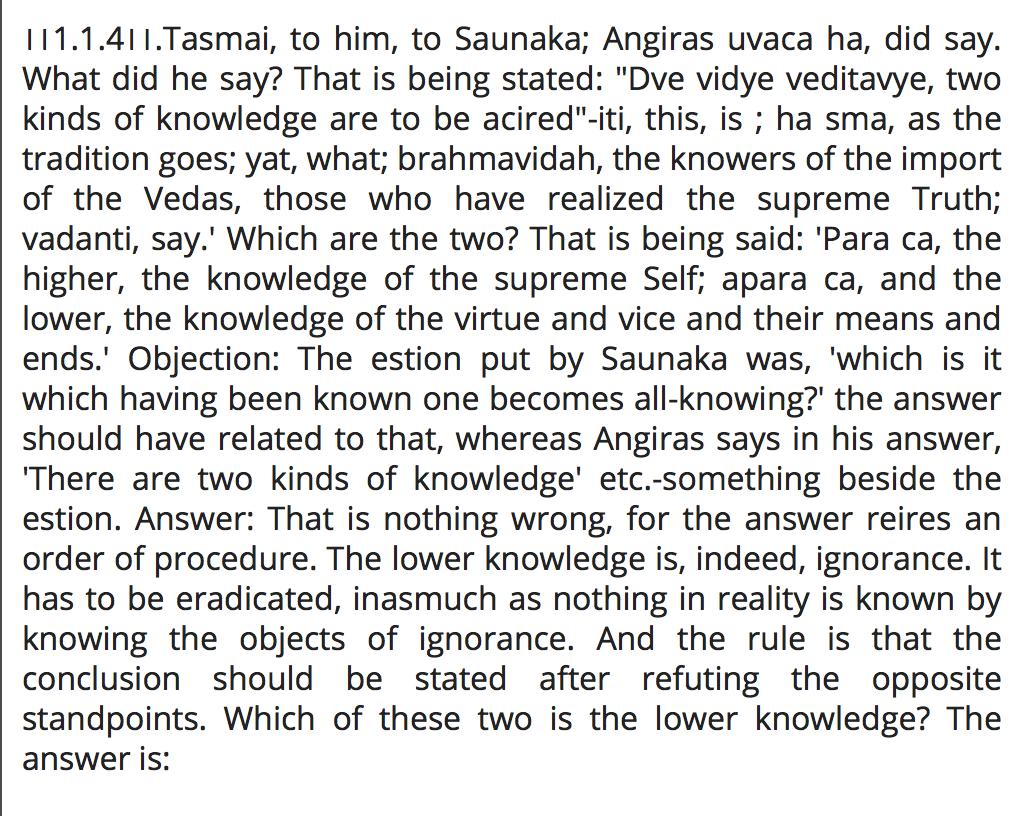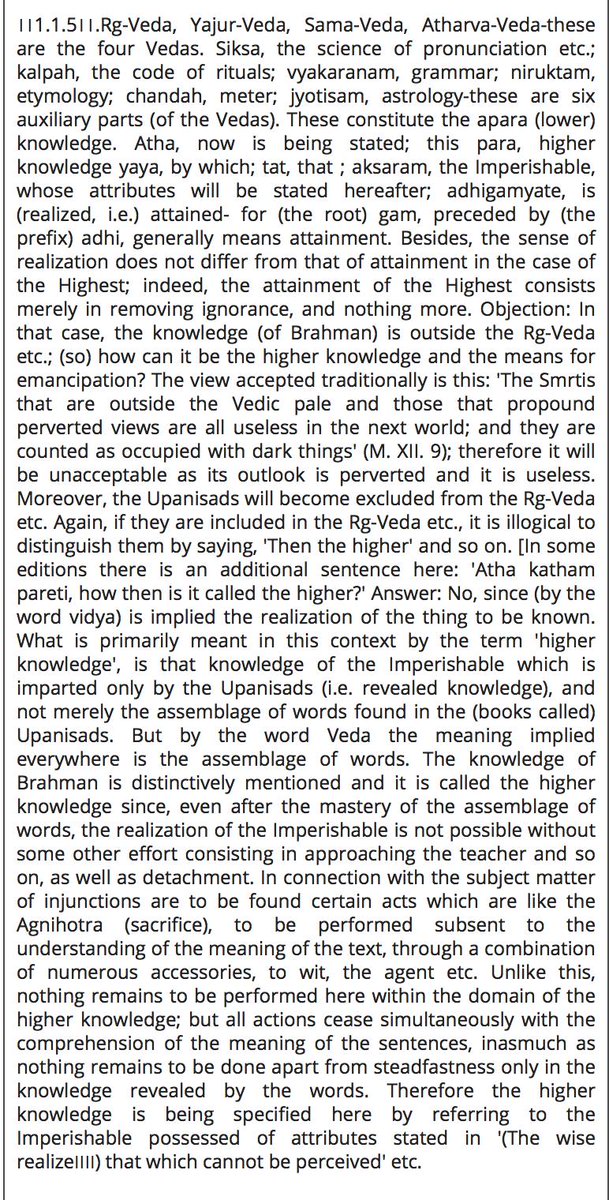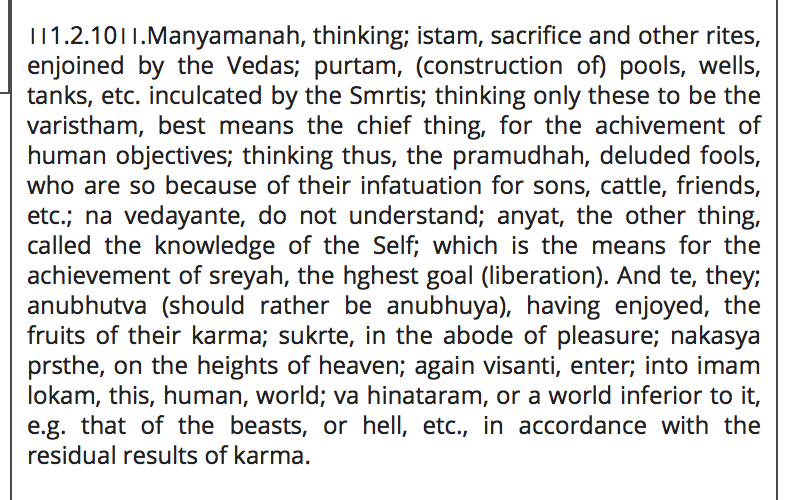In this traditionalist view, the Upanishads are not a historical development that arose in reaction to the ritualism of the earlier period, but works that are consistent with the karmakAnDa
And that's defensible given that modern Hindu practice regards both the ritualism of the Veda and the brahma vidya of Upanishads as sacrosanct
But a counterpoint can be made for a historicist interpretation
One of the principal Upanishads, though not quite among the oldest. Usually dated to the period post Buddha
It is a text that is usually regarded as a part of the Atharva Veda
This raises questions on whether traditionalists overstate the "internal consistency" argument w.r.t. the Shruti
तस्मै स होवाच। द्वे विद्ये वेदितव्ये इति ह स्म यद्ब्रह्मविदो वदन्ति परा चैवापरा च।।1.1.4।।
It suggests a spirit that is somewhat critical of KarmakAnda
A possible nAstika cultral influence critical of Vedic ritual? Maybe






